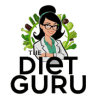The Ultimate Guide to Diet Products: What Works, What Doesn’t, and How to Choose
Introduction to Diet Products and Their Role in Weight Management
In today’s fast-paced world, many people turn to diet products as a means to support their weight loss goals. These products promise quick results, easy solutions, and effortless weight management. But do they really work? And more importantly, are they safe?
This comprehensive guide will delve into the world of diet products, exploring their effectiveness, potential risks, and how to make informed choices. Whether you’re considering trying a diet product or simply want to learn more about this billion-dollar industry, this article will provide you with valuable insights and practical advice.
Types of Diet Products
The diet product market offers a wide array of options, each claiming to be the key to successful weight loss. Let’s explore the most common types:
Meal Replacement Shakes and Bars
These products are designed to replace one or more meals per day, providing a controlled amount of calories and nutrients.
Pros:
- Convenient and portion-controlled
- Can help reduce calorie intake
- Often fortified with vitamins and minerals
Cons:
- May not satisfy hunger as well as whole foods
- Can be expensive long-term
- May lack the variety and enjoyment of regular meals
Weight Loss Supplements
These include a variety of pills, powders, and liquids that claim to boost metabolism, reduce fat absorption, or increase fat burning.
Pros:
- May provide additional nutrients
- Some have shown modest effects in clinical studies
Cons:
- Effects are often small and may not be clinically significant
- Can have side effects, especially when combined with medications
- Many lack substantial scientific evidence
Appetite Suppressants
These products aim to reduce hunger and food cravings, making it easier to stick to a calorie-restricted diet.
Pros:
- May help control hunger in the short term
- Can be useful for those struggling with portion control
Cons:
- Effects may diminish over time
- Can have side effects like dry mouth, insomnia, and increased heart rate
- May not address underlying eating behaviors
Fat Burners
These supplements claim to increase metabolism and promote fat oxidation, leading to increased calorie burning.
Pros:
- May provide a slight boost to metabolism
- Some ingredients (like caffeine) can increase energy and focus
Cons:
- Effects are often minimal and short-lived
- Can cause jitters, anxiety, and sleep disturbances
- May interact with medications or exacerbate existing health conditions
Detox Teas and Cleanses
These products claim to rid the body of toxins and promote rapid weight loss through increased urination and bowel movements.
Pros:
- May promote hydration if replacing sugary drinks
- Can create a sense of “starting fresh” for some users
Cons:
- No scientific evidence supporting “detoxification” claims
- Can cause dehydration and electrolyte imbalances
- Weight loss is often temporary and due to water loss
Portion Control Tools
These include special plates, containers, and utensils designed to help users measure and limit food intake.
Pros:
- Can help increase awareness of portion sizes
- May be useful for those new to calorie counting
- Non-invasive and generally safe
Cons:
- Requires consistent use to be effective
- May not address emotional or psychological aspects of overeating
- Can be inconvenient when eating out or at social events
Fitness Trackers and Apps
While not diet products per se, these tools are often used in conjunction with diet products to monitor calorie intake, physical activity, and progress towards weight loss goals.
Pros:
- Increases awareness of daily habits
- Can provide motivation and accountability
- Often includes educational resources and community support
Cons:
- Accuracy of calorie tracking can vary
- May lead to obsessive behavior in some individuals
- Privacy concerns regarding data collection and sharing
How to Evaluate Diet Products
With so many options available, it’s crucial to approach diet products with a critical eye. Here’s how to evaluate them effectively:
Understanding Claims and Marketing
- Be wary of products promising “miracle” results or quick fixes
- Look for specific, measurable claims rather than vague promises
- Check if the product has been endorsed by reputable health organizations
Reading Labels and Ingredient Lists
- Familiarize yourself with common ingredients and their effects
- Look for products with simple, recognizable ingredients
- Be cautious of proprietary blends that don’t disclose exact amounts of ingredients
Researching Scientific Evidence
- Search for peer-reviewed studies on the product or its key ingredients
- Look for large, long-term studies rather than small, short-term ones
- Consider the source of the research and potential conflicts of interest
Considering Potential Side Effects
- Research common side effects associated with the product or its ingredients
- Consider how these side effects might interact with your lifestyle or health conditions
- Be aware that natural doesn’t always mean safe – many natural ingredients can have potent effects
Conclusion
Diet products can be a helpful tool for some individuals on their weight loss journey, but they are not a magic solution. The most effective approach to weight management combines a balanced diet, regular physical activity, and sustainable lifestyle changes.
When considering diet products, it’s crucial to approach them with a critical eye, do thorough research, and consult with healthcare professionals. Remember that what works for one person may not work for another, and there’s no substitute for a healthy, balanced lifestyle.
Further Reading
- Nutrition Basics
- Popular Diet Plans
- Sustainable Weight Loss Strategies
- Understanding Food Labels
- Importance of Physical Activity in Weight Management
Disclaimer: Always consult with a healthcare professional before starting any new diet or supplement regimen. This article is for informational purposes and is not medical advice.

